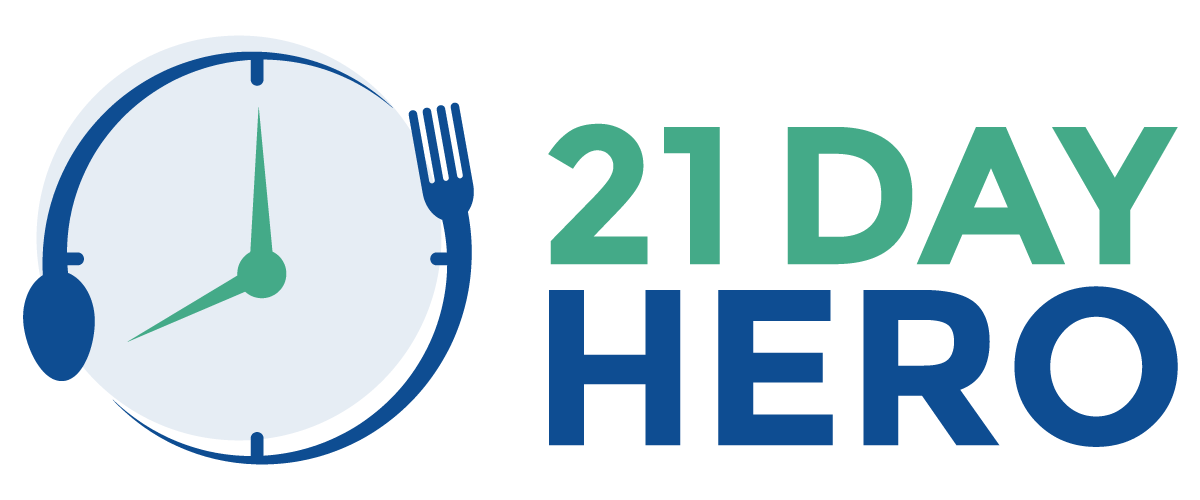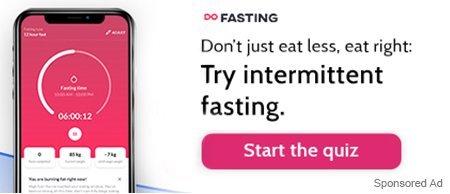What is Intermittent Fasting | Does Intermittent Fasting Work for Women over 40 | Protein For Women Over 40 | Is Intermittent Fasting Right For You? | Fasting Tips for Women Over 40
Maintaining a healthy weight and lean figure becomes challenging for women with aging. Especially those who turn over 40 and approach the menopausal stage. After the age of 40, there is a sudden decrease in the estrogen level along with some other hormonal changes such as cortisol, thyroid hormones, serotonin, and sex hormones. Women often experience conditions like increased abdominal fat, rapid muscle loss, severe mood swing, osteoporosis, impaired metabolism, depression, anxiety, stress, sleep deprivation, etc. This articles will cover EVERYTHING Intermittent Fasting For Women Over 40, let’s dive in!
To combat these issues, it is indispensable to maintain a healthy lifestyle that includes nutritious food, exercise, getting adequate sleep, and managing stress. Besides all these, intermittent fasting is another healthy option for women who turn 40 and struggle to lose weight.
In this article, we will explore intermittent fasting, its benefits, and how it works for women over 40.

What is Intermittent Fasting?
Intermittent fasting is nothing but an eating pattern that alternates between periods of eating and fasting. Unlike other diet plans, the intermittent fasting plan does not track calories rather it emphasizes when to eat and how much time you keep yourself refrained from eating. It allows eating only during a specific time period in a day and fasting for the rest, eating no calories. In this way, it helps you consume lesser calories and, thereby, helps you lose weight.
When the fasting window ends, you can consume food normally. However, to obtain the maximum benefits of intermittent fasting, you need to have a balanced diet that includes all healthy foods. As women over 40 tend to have a weaker metabolism, consuming a healthful diet would help make their metabolism stronger and alleviate other hormonal imbalances.
Further, it is also crucial to keep yourself well-hydrated throughout the day. Water, black coffee (without cream and sugar), and green tea are some of the excellent options to choose from. It is advised to avoid inflammatory foods such as sugary and carbonated drinks, fried food, processed meat, refined sugar, and grains. These are believed to exacerbate the negative effects of menopause, such as hot flashes and weight gain.
Here are some most popular types of intermittent fasting:
- Time-restricted eating (TRE): It is a pre-set schedule that involves limiting your eating window to a specific time duration and fasting for the rest of the day. One such example is the 16/8 method wherein you restrict calorie ingestion for 16 consecutive hours and consume food within an 8-hourly time window. It is one of the popular fasting plans since it is easy to follow and less restrictive.
- The 5/2 method: This plan involves eating normally for five days of the week and limiting food intake to an average of 500 calories per day for the rest of the two non-consecutive days.
- Alternate day fasting: It includes fasting on alternate days and eating on the rest of the days. However, it is allowed to consume up to 500 calories per day on fasting days. Research indicates that this intermittent fasting method is helpful in weight loss, improving heart health, and alleviating inflammation by lowering oxidative stress.
To learn more about types of fasting, check out these various types 16/8 Fasting, Alternate-day Fasting, and 14/10 fasting.

Benefits of Intermittent Fasting For Women Over 40
Intermittent fasting has various benefits. Many may follow intermittent fasting in the hope of losing weight. But how far it is effective for women who are over 40?
Women over 40 are susceptible to weight gain due to fluctuating hormone levels. Further, perimenopausal women and women who are approaching menopause tend to have high hunger hormones or ghrelins, which may lead to abdominal fat deposition. Hence, we can reasonably presume that intermittent fasting can be worth a try. However, this should be done safely under the supervision of a registered dietician or medical practitioner.
Along with weight loss goals, other benefits of intermittent fasting include:
- Improves metabolism that helps burn calories and promotes weight loss.
- Improves human growth hormone, which leads to increased muscle tone and decreased fat mass.
- It increases insulin sensitivity and lowers insulin levels and insulin resistance. Thus, helps manage type-II diabetes.
- It encourages autophagy, a process of waste removal that does the cellular repair of the body. Autophagy may help protect against diseases like cancer and Alzheimer’s disease.
- It enhances insulin sensitivity and thus supports weight loss.
- Prevents metabolic syndrome, which causes neurological conditions.
- Improves circadian rhythm.
- Improves insomnia, depression, and anxiety.
- Lowers inflammation by increasing the body’s resistance to oxidative stress and fights free radicals. It also improves gut and liver health.
- It augments heart health by lowering blood sugar levels, high blood pressure, triglyceride, and LDL cholesterol levels.
- Enhances cognition.
- Boosts fitness level and athletic performance.
However, if you are suffering from medical conditions like diabetes, or eating disorders you must consult with your doctor before considering intermittent fasting.
Does Intermittent Fasting Work for Women over 40?
The simple answer is yes, it does. A 2020 study shows that intermittent fasting works for pre and postmenopausal women by decreasing insulin levels, insulin resistance, fat mass, and blood pressure. The LDL cholesterol level which is a possible risk factor for heart disease, reduces by following intermittent fasting in post-menopausal women.
As per a 2021 research, time-restricted feeding or TRF has many benefits like reducing fat mass, fasting insulin, insulin resistance, and 8-isoprostane (a marker of oxidative stress) in both pre and post-menopausal women.
Since estrogen levels decline in women over 40, they are predisposed to gain weight faster, develop heart disease, and may encounter problems in blood sugar regulation. Intermittent fasting can help overcome all these problems.

Intermittent Fasting and Diet Quality
Even though intermittent fasting has numerous health benefits, caution must be exercised while opting for food. Taking care of physical activity, quality of sleep, and stress management may additionally help. Failing which, your progress will be negatively affected.
Since women over 40 are at a higher risk of losing muscle mass and developing fat mass, a diet containing whole grains, legumes, vegetables, lean proteins, nuts, and fruits will be considered best for them (Options may include a Paleo or Mediterranean diet).
As you grow older, your muscle mass tends to wear off faster. This issue adds on if you do not stay active physically or even do not include adequate protein in your diet. Muscle loss can lead to metabolic dysfunction and weight gain. Since intermittent fasting focuses on the restriction of calories, it may lead to a lower intake of proteins. If you do not consume your target protein, you may encounter losing of muscle mass. Hence, you need to optimize your protein intake and perform strength training to overcome this problem.
How Much Protein Do Women Over 40 Require?
The recommended dietary allowance (RDA) for protein for maximizing muscle health is 0.8 grams per kilogram of body weight. As you grow older, your body does not use dietary protein efficiently. As a result, more protein is needed to build up your muscle health. As per experts’ recommendation, the protein requirement for elderly adults should be a minimum of 1.2 to 2 grams per kilogram of body weight per day.
For example, if you are above 45 years of age, and are 60 kg or 132.27 pounds, then you are required to have at least 72 to 120 grams of protein every day or possibly more than that.
Is Intermittent Fasting Right For You?
Not only do people who are overweight or have metabolic disorders benefit from intermittent fasting, but people who are normal weight and healthy also get benefitted from it. However, when you think of intermittent fasting, you need to identify whether it is good for you.
Intermittent fasting is suitable for you if you meet the following conditions:
- When you refrain from eating you feel good
- During the fasting window, you do not crave food from time to time
- The short-term liquid-only fast makes you feel better and lighter
You should not do intermittent fasting if you:
- Experience dizziness, exhaustion, irritability, and hunger
- Always craving for food during the fasting window
- Get irritated with a short-term liquid-only fast

Fasting Tips for Women Over 40
If you consider intermittent fasting, you may follow the fasting tips mentioned below.
Start Out Slowly
Keeping the duration of fasting short at the start is a good-to-go technique for those who are new to the intermittent fasting schedule. Starting with an overnight fast i.e. from dinner to breakfast will make you feel light and better. Once you get acquainted with this short window, you can gradually increase your duration of fasting.
Don’t Do Too Much Calorie Restriction
Compromising on ingesting the required amount of calories within the eating window is never a good idea. Many people restrict themselves from having the required amount of food and end up taking fewer calories. This may impair your overall metabolism and may result in losing muscle mass instead of gaining it. A shortage in calories may also cause low blood pressure and electrolyte imbalance.
Alternatively, you may opt for a minor deficit in calories in order to avoid such conditions and attain better results.
Prioritize Your Protein Intake
A diet poor in protein may lead to sarcopenia, a condition that induces skeletal muscle loss. Insufficient intake of protein may also harm your immunity and you may fall sick often. A lack of protein may decrease your strength as well. Eating an adequate amount of protein might be challenging when you fast for a prolonged period. Hence, keeping track of how much protein you take in is highly recommended.
Focus on Strength Training
Since exercising complements intermittent fasting, strength training is essentially required to help you gain lean body mass while fasting. As you grow older, it becomes challenging to retain muscle mass. Thus, it eventually leads to weight gain. But following a regular strength training schedule along with having adequate protein intake can help you lose weight and maintain a lean body.
Drink Enough Water
To remove toxins from your body you need to drink an adequate amount of water while intermittent fasting. It will also make you feel full and help you refrain from ingesting unnecessary calories.
Maintain Electrolyte Balance
Your body loses electrolytes during a fast. When you are on prolonged intermittent fasting, your sodium and potassium levels may drop drastically and result in symptoms like muscle cramping, headache, and fatigue. It is essential to replenish your electrolyte levels by consuming electrolyte water, coconut water, and electrolyte-rich foods such as spinach.
Focus on a Nutrient-Rich Diet
While intermittent fasting emphasizes when to eat only, what to eat is equally crucial to withstand fasting in the long run and remain in good shape. You must consume a combination of whole grains, complex carbs, lean proteins, healthy fats, and fiber.
Further keeping an optimal water intake is also important. Avoiding refined foods, packed foods, deep-fried foods, and excessively sugary and salty foods is highly recommended. A balanced and healthy diet can help you fight several chronic diseases and help you keep good health.
Exercise Portion Control
A portion is the amount of food you eat at a time. However, it can possibly be more or less than the ideal serving size. Hence, controlling portions is crucial even if you are allowed to eat anything during the eating window.
The Final Words – Intermittent Fasting For Women Over 40
Women over 40 and older experience a lot of changes in their bodies such as obesity, hyperglycemia, insulin resistance, altered metabolism, mood swings, rapid muscle loss, anxiety, depression, etc. during their perimenopause. The real culprit behind all these factors is the decreased estrogen level and increased hormonal imbalances.
Although limited researches are available, some researches illustrate that intermittent fasting can be beneficial for women over 40 and above with weight loss, reduced insulin resistance, blood glucose levels, and LDL cholesterol levels. Intermittent fasting can help boost metabolism and improve heart health.
If you wish to see whether intermittent fasting helps you lose weight and maintain a slender body, then you should definitely give it a try. However, you need to figure out which is the right plan for you, and for that, consulting your healthcare expert is highly suggested, especially if you have any pre-existing health conditions.
Are you over 50? Check this out – Intermittent Fasting for Women Over 50.











